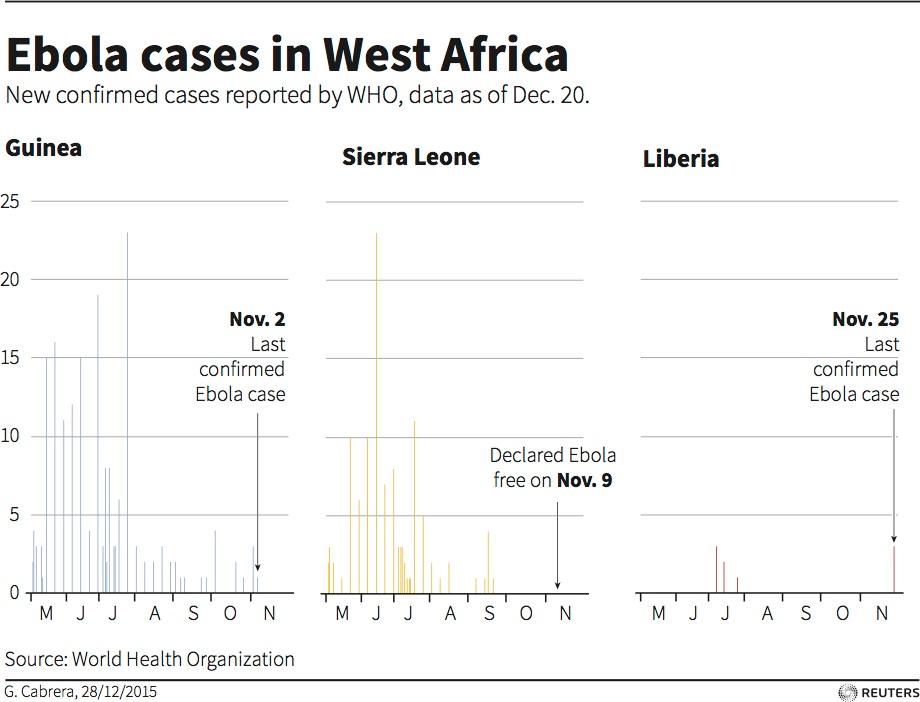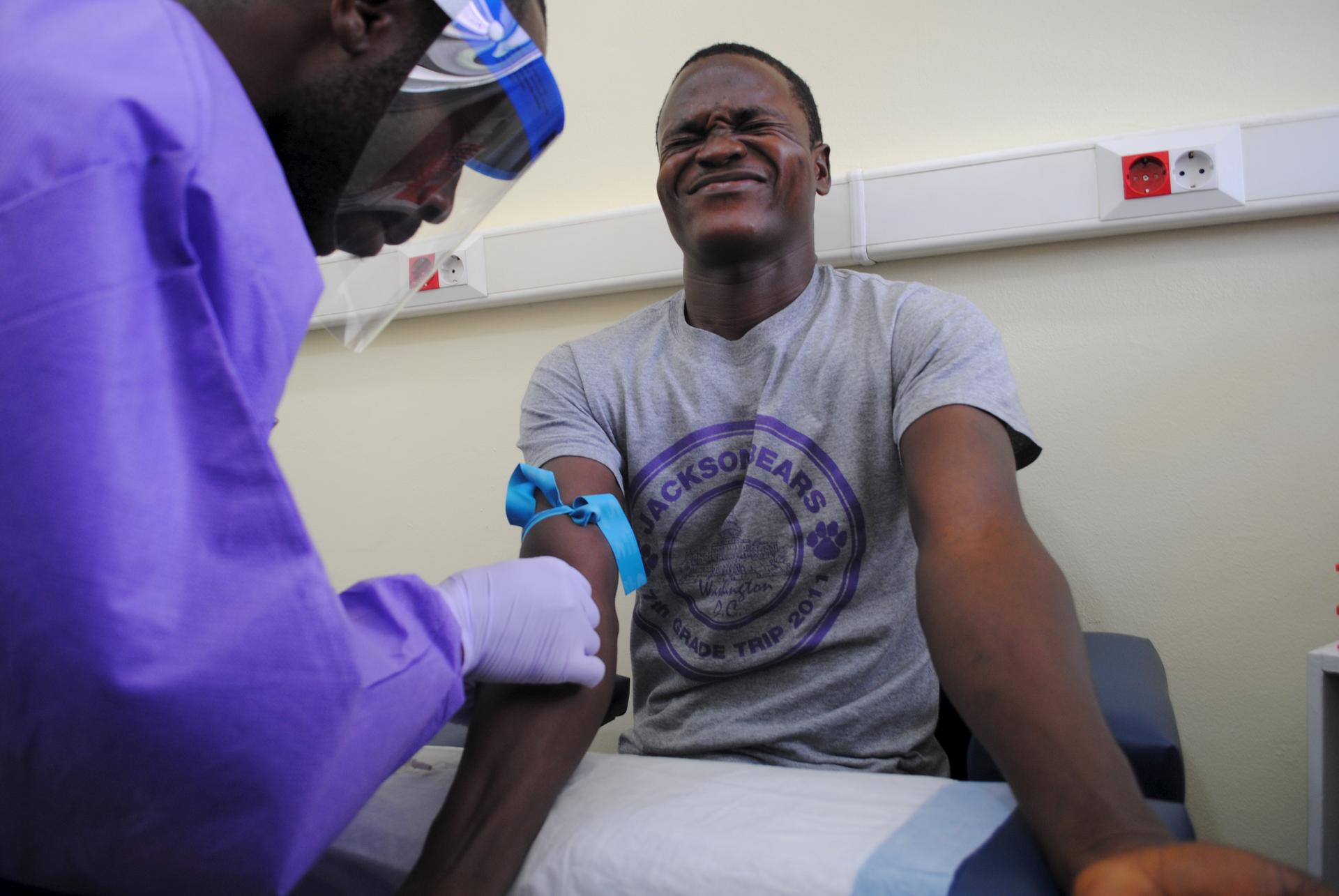The blood of a survivor of the Ebola virus is extracted as part of a study launched at Liberia's John F. Kennedy Hospital in Monrovia, Liberia, June 17, 2015.
The World Health Organization's declaration that Liberia is Ebola-free means that the two-year epidemic that killed more than 11,000 people and infected 28,000 others is over, right?
Well, not quite. But that isn't stopping Liberians from celebrating — even if it may not look like it.
"People are slowly returning to our way of life," says Lewis Brown, Liberia's minister of information, cultural affairs and tourism. "We're still recovering from the after-effects. We were engulfed by fear. Fear of each other. Fear of our old way of life. Fear of our inner cultural values and beliefs."
Brown says the disease — because of the way it is transmitted — has changed everything, including how mothers take care of their children and how people greet each other in the street.
"It went to the heart of who we are," he says.

But there have been some positives as a result of the catastrophic virus: people are thinking differently about health.
"In the Ministry of Information, where I work, we still have our bucket, our water, our soap. And we're still encouraging people to wash. It has altered the way we treat patients at our medical facilities. That will remain in place for a very long time. We have a triage system that is being institutionalized. Our people are being trained and retrained. … Just to step back a bit, we say many of our hospitals and clinics literally become incubating places for the virus because of poor infection prevention procedures that we had in our medical facilities. Now that we've had this tragic experience, these things have improved," he says.
But even as the WHO marked the end of the epidemic, they cautioned that new flare-ups are still very possible.
Related Story: We still don't know for sure how Ebola reached humans
David Quammen, the author of "Ebola: The Natural and Human History of a Deadly Virus," agrees. Because the disease is so aggresive and virulent in humans, it can't live only in humans, he says. We would know if someone was infected.
"A virus can only persist if it can keep itself alive within the cells of some other living creature," he says. "So it's got to be in a critter out there. It's got to be in some other sort of organism in between the times when it's killing humans."
The difference between Ebola and viruses that have been eradicated is that Ebola can be trasmitted between humans and other species, called "reservoir hosts." In fact, the virus doesn't necessarily transmit only between humans and other animals. It might jump from a plant or a fungus.
Quammen says it's critical that scientists find out more about reservoir hosts.
"Forty years since the first Ebola outbreak, and we still don't know where the virus lurks between human outbreaks," he notes. "It's a very important question because until we solve it, we should expect another outbreak to occur eventually."
Our coverage reaches millions each week, but only a small fraction of listeners contribute to sustain our program. We still need 224 more people to donate $100 or $10/monthly to unlock our $67,000 match. Will you help us get there today?
